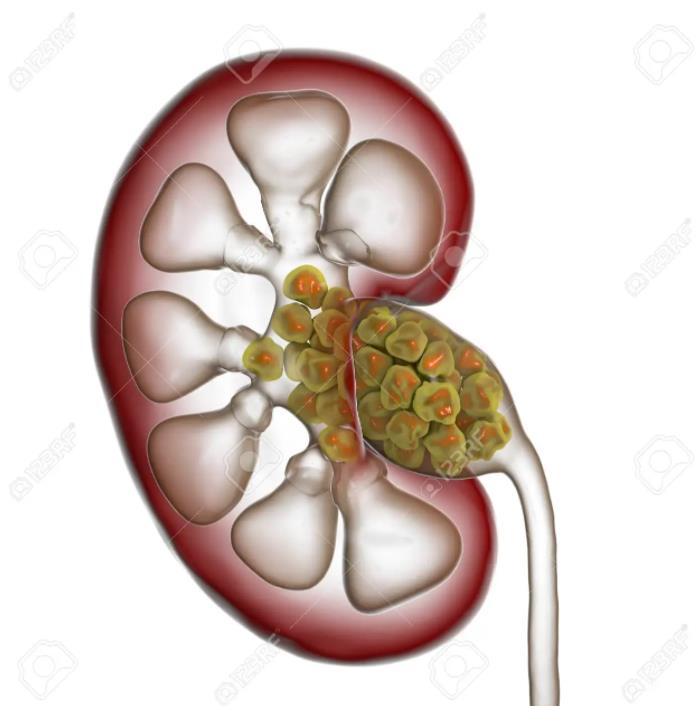Kidney Stones
Overview
What is Kidney Stones
The kidneys – bean shaped organs – lie on each side of the spine, near the middle of the back and just below the ribcage. The ureters are tubes which connect the kidneys to the bladder and transport the urine produced by the kidney to the bladder for storage.

Symptoms
Often, when stones are located in the kidneys, there are no symptoms and it is only when they travel down into the more constricted space of the ureter that acute pain develops. Pain tends to develop in the kidney if the stone becomes large enough to block the flow of urine. Symptoms may include the following:
- Renal colic – severe loin pain starting in the small of the back below the ribs or in the lower abdomen, which can also travel to the groin. The excruciating pain can last for a few minutes or hours with short periods of relief.
- Feeling nauseous and possibly vomiting.
- Bloody or cloudy urine.
Causes
We offer patients Metabolic Stone Screening. This investigation (non-invasive, it requires the patient to collect all urine that is passed within two consecutive 24hr periods) will determine the reason that kidney stones are being formed in the first place. This is turn will help the Consultant to advise on preventing the formation of further kidney stones. Over 50% of kidney stone patients will form another stone in the next 10 years.
Genetics: In approximately 25% of cases the cause is genetic, where there is usually a family history of kidney stones.
Geography: Chronic dehydration is a major cause in the formation of stones because many people do not drink enough fluid and those living in hot climates are more susceptible to kidney stones.
Diagnosis
You will be asked about your symptoms and diet. A diagnosis will need to establish the exact size, location and type of kidney stone you have. The investigations, using radiological imaging, such as a CT scan, will diagnose the site and size of the stone and the degree of kidney blockage, and can usually be done quickly during the first visit.
Other tests may include:
- Urine test for infection.
- Blood tests to show whether you have high levels of certain chemicals linked to kidney stones.
- X-rays – stones containing uric stones are usually not seen on x-rays.
- Ultrasound scan of the urinary tract.
Treatment
Pain relief is the first priority and there has been a trend toward the use of anti-inflammatory agents (NSAID). Not all patients require hospital admission. However, it is mandatory in some circumstances, especially in the presence of infection and kidney blockage.
Our trusted Consultant Anaesthetists are all experts in their fields, with an established history of specialism in kidney surgery, along with our team of nurses, who have been treating patients with stones for many years, offering clinical expertise as well as sound advice and reassurance throughout the entire treatment process.
